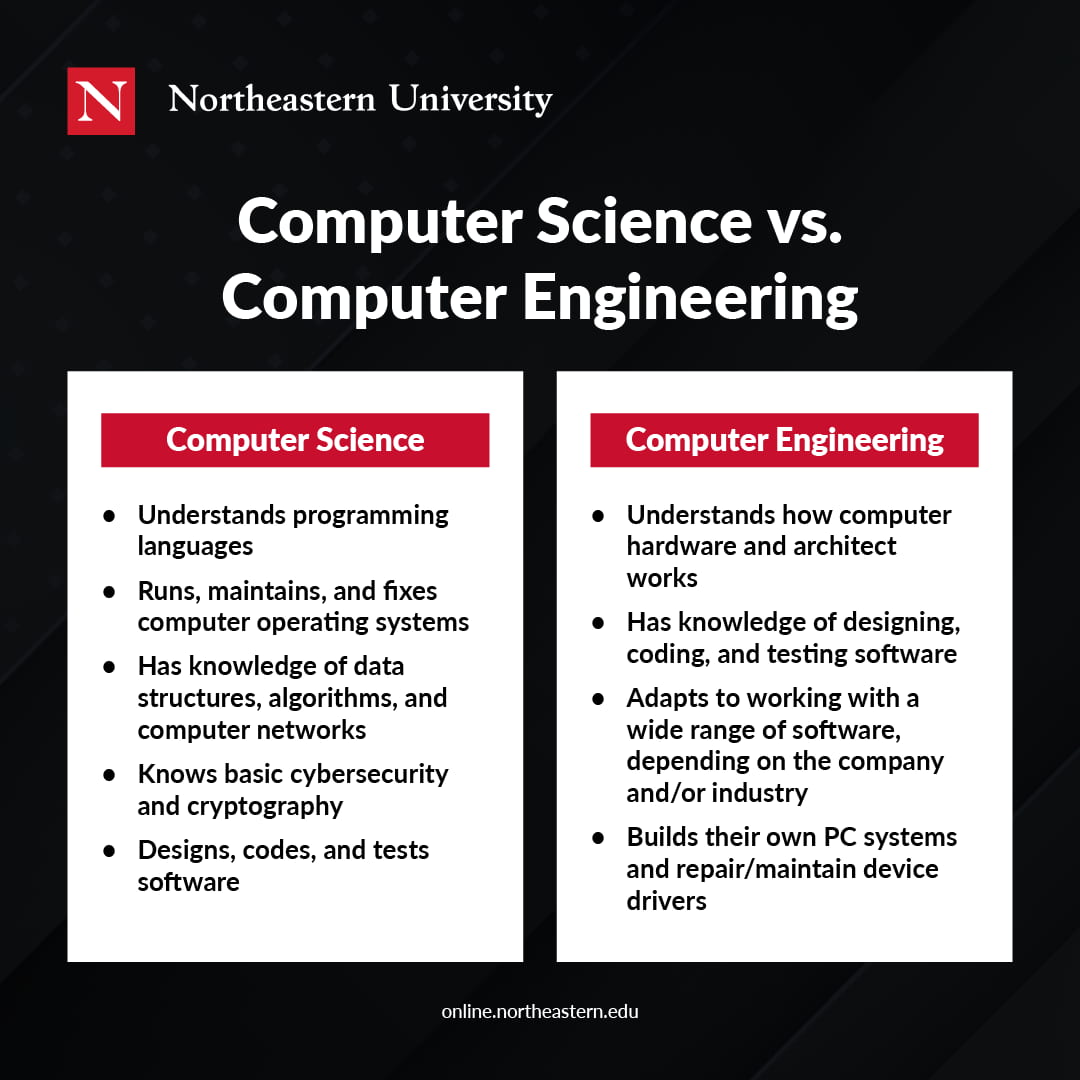In the contemporary educational landscape, the distinction between mathematics and computing versus computer science provokes significant discourse among academics and students alike. Not merely a matter of nomenclature, this differentiation invites exploration into the intellectual laboratories that shape our understanding of algorithms, data structures, and theoretical frameworks. This discussion will illuminate essential contrasts and intersections between these disciplines, addressing common curiosities and delving into the reasons for their respective fascinations.
Fundamental Distinctions
Mathematics serves as the bedrock of logical reasoning, offering abstract constructs that elucidate the structures of numerical systems, geometrical entities, and more intricate concepts such as topology and functional analysis. In stark contrast, computer science manifests as a pragmatic field, interlaced with practical applications that dominate the technological landscape. While mathematics is primarily concerned with the pursuit of truth and theoretical postulates, computer science leverages these mathematical underpinnings to develop algorithms and computational models that execute real-world problems.
For instance, a mathematician might delve deeply into the properties of prime numbers, driven purely by curiosity and the quest for comprehensiveness. Conversely, a computer scientist may apply concepts of number theory to devise efficient cryptographic systems used in securing digital transactions. Thus, the paths diverge significantly: one cloaked in abstraction, the other enmeshed in application.
The Role of Computational Mathematics
Despite their differences, the nexus of mathematics and computing is embodied in the realm of computational mathematics. This discipline occupies a pivotal role, functioning as a bridge between pure mathematical theory and the technological undertakings of computer science. By employing numerical methods and algorithms, computational mathematics facilitates problem-solving in complex scenarios where analytical solutions may be elusive. Techniques such as matrix computations, differential equations, and optimization tactics are all instrumental in both domains, underscoring the synergy that exists.
Moreover, the burgeoning field of data science epitomizes this convergence; it is a multidisciplinary domain that requires not only programming proficiency but also a robust mathematical foundation. Probabilistic models, statistical inference, and combinatorial analysis are vital in interpreting the deluge of data generated in the digital age. Here, the duality of mathematics and computing manifests in significant, practical outputs—a compelling case for their intertwined nature.
Theoretical Underpinnings
Underpinning both fields is an emphasis on rigorous reasoning and formal proofs. In mathematics, concepts are delineated through axioms and theorems, building a coherent structure that is often aesthetically pleasing. This intellectual rigor cultivates a sense of precision and clarity, essential for abstract reasoning. Computer science, while operationally applied, also retains a theoretical component that scrutinizes algorithms through computational theory, complexity, and formal verification. The distinction arises in the preferred methodologies—mathematics often seeks universal truths, whereas computer science is frequently messy, striving for pragmatic solutions within defined constraints.
Furthermore, fields such as algorithmic information theory illustrate how deeply entwined these disciplines are. Classical results from theoretical computer science derive from mathematical logic and set theory, yet they find their expressions in computational feasibility and efficiency. As such, understanding these connections enriches both disciplines, presenting students with a multifaceted view of problem-solving. It reveals an enduring intrigue that lies not solely in equations and codes, but in the principles that bind them.
Cognitive and Philosophical Dimensions
The philosophical implications of mathematics versus computer science also merit examination. Mathematics has long been associated with notions of beauty, truth, and creativity in abstraction. It invites existential inquiry regarding the universe and the nature of reality itself, encapsulating abstract thoughts that often transcend empirical validation. The question of whether mathematical entities exist independently of human thought or if they are merely constructs of the mind engages philosophers and mathematicians alike.
On the other hand, computer science is frequently viewed through a pragmatic lens, focusing on quantitative achievements and innovations. The ethical considerations arising from artificial intelligence, machine learning, and data privacy orbit this field, prompting debates about the implications of technology on society and individual agency. Such discussions reveal a different dimension of fascination, one grounded in the tangible consequences of computational advancements, raising critical questions about the responsibilities of computer scientists in shaping a digital future.
Future Intersections and Continuous Exploration
As exploration into both fields progresses, their intersection is likely to proliferate further. The advent of quantum computing presents a burgeoning frontier where the principles of quantum mechanics and computer science converge, demanding a deeper understanding of mathematical concepts and physical theories. Blockchain technologies, advanced cryptography, and machine learning techniques continue to challenge and inspire both mathematicians and computer scientists. The continuous evolution of these domains beckons further inquiry, underscoring the necessity for interdisciplinary fluency among future scholars.
Conclusion
In summary, the distinction between mathematics and computing and computer science invites rich exploration into theoretical versus practical realms. This distinction fosters an appreciation for the beauty of abstractions while simultaneously recognizing the profound applications that spring forth from rigorous inquiry. Both disciplines converge and diverge in their respective quests for knowledge, compelling individuals to engage in the transformative power of logic, algorithmic design, and ethical discourse. Ultimately, the fascination with mathematics and computing as well as computer science reflects an enduring human desire to comprehend the underlying principles of existence, catalyzing innovation and understanding in an ever-evolving technological landscape.












